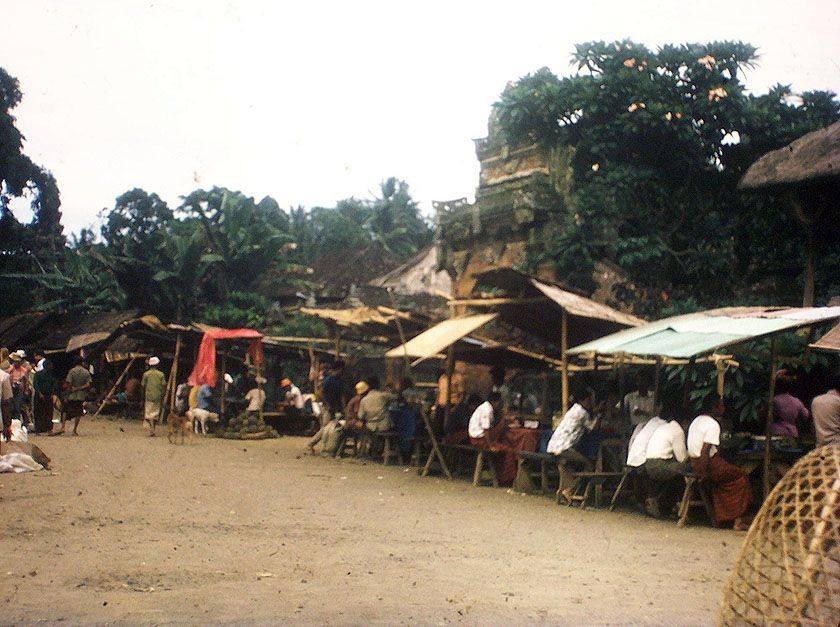When you think of Bali, you might picture stunning beaches, lush rice paddies, or vibrant nightlife. But beneath the sun-soaked exterior lies a heart that beats to the rhythm of *tradisi*—tradition. Traditional Balinese ceremonies and festivals are vibrant, colorful, and steeped in spirituality, making them an integral part of life on this enchanting island. Join me as I take you through some of these ceremonies, sprinkling in personal anecdotes and insights that I hope will draw you into the fascinating world of Balinese culture.
A Feast for the Senses
One of my most memorable experiences in Bali was attending the *Ngurah Rai* festival in Kuta, which celebrates the island’s rich culture and traditions. As I wandered through the throng of people, the air was filled with the intoxicating aromas of incense, freshly prepared Balinese dishes like *babi guling* (suckling pig), and the sweet, tantalizing scent of *kue lapis* (layered cake). The vibrant colors of the traditional sarongs splashed around me like a painter’s palette. I couldn’t help but smile as a little girl, clad in her best *kebaya*, tugged at her mother’s hand, excited to see the colorful procession.
This festival isn’t just a celebration; it’s a tapestry woven with prayers, rituals, and a deep connection to the divine. The Balinese believe that every ceremony serves to maintain harmony between the spiritual and physical worlds. Let’s delve into the most notable ceremonies and festivals that you might want to experience when visiting Bali.
Melasti: Purifying the Soul
One of the most significant rituals in the Balinese Hindu calendar is the *Melasti* ceremony, which occurs a few days before *Nyepi*, the Day of Silence. Picture this: thousands of people, dressed in white, gather at the beach, carrying offerings and sacred objects. The atmosphere is electric with anticipation.
I remember standing on the sandy shores of Legian Beach as the sun rose above the horizon, casting a golden glow on the sea. The sound of gamelan music filled the air, played by a group of men sitting cross-legged on the beach. Women balanced intricate offerings on their heads, and children splashed joyfully in the waves. It struck me how this ceremony is a moment of purification, a chance for the community to wash away their sins and start anew.
Practical Tip:
If you’re in Bali during the *Melasti* ceremony, don’t forget to bring a sarong and sash if you want to participate respectfully. Arriving early to find a good spot will also let you soak in the ceremonial atmosphere without the crowds.
Nyepi: A Day of Silence
Following *Melasti* is *Nyepi*, which is celebrated as the Balinese New Year. Unlike typical New Year festivities filled with parties and fireworks, *Nyepi* is a day of silence, self-reflection, and meditation. The streets are eerily quiet—no cars, no motorbikes, no music. It’s as if the island takes a deep breath, collectively.
The night before *Nyepi*, you can witness the vibrant *Ogoh-Ogoh* parades—giant papier-mâché monsters that symbolize evil spirits. I vividly remember watching as teams of young men heaved a massive *Ogoh-Ogoh* through the streets, chanting and drumming as they went. The excitement reached its peak when they finally set it ablaze, flames dancing under the night sky, symbolizing the purification of negativity.
Insight:
Experiencing *Nyepi* is a unique opportunity to reflect on your own life. While the world outside might feel chaotic, Bali offers a chance to slow down, meditate, and reset. Many resorts encourage guests to partake in this ritual, providing meditation classes and wellness activities throughout the day.
Galungan: Celebrating Goodness
Another stunning ceremony is *Galungan*, which celebrates the victory of good over evil. It happens every 210 days and lasts for ten days. What struck me during my visit was the sheer beauty of the *penjor*, elaborately decorated bamboo poles placed outside homes and temples. Each *penjor* tells a story of gratitude and celebration.
During *Galungan*, families come together to create elaborate offerings, and the air is filled with laughter and the enchanting sounds of traditional Balinese music. I remember joining a local family to help with the preparations—making offerings of fruit and flowers while listening to tales of ancestral spirits and their importance in Balinese life.
Relatable Scenario:
Imagine joining a local family and trying your hand at cooking traditional dishes, the kitchen bustling with energy and the aroma of coconut and spices wafting through the air. Sharing food with them as they recount stories is a surefire way to feel connected to the island’s spirit.
Conclusion: Embrace the Experience
Bali’s traditional ceremonies and festivals are more than just events; they are an invitation to connect with the island’s soul and its people. Whether you find yourself swept away in the energy of *Ngurah Rai*, reflecting quietly during *Nyepi*, or joining the joyous celebrations of *Galungan*, these experiences will surely leave an imprint on your heart.As you plan your trip, keep your mind and heart open to the unique traditions that flourish in this magical place. Don’t hesitate to engage with locals, ask questions, and immerse yourself in their worldview. Bali, with its rich tapestry of culture, is waiting to tell you its stories, one ceremony at a time. Be part of it!






